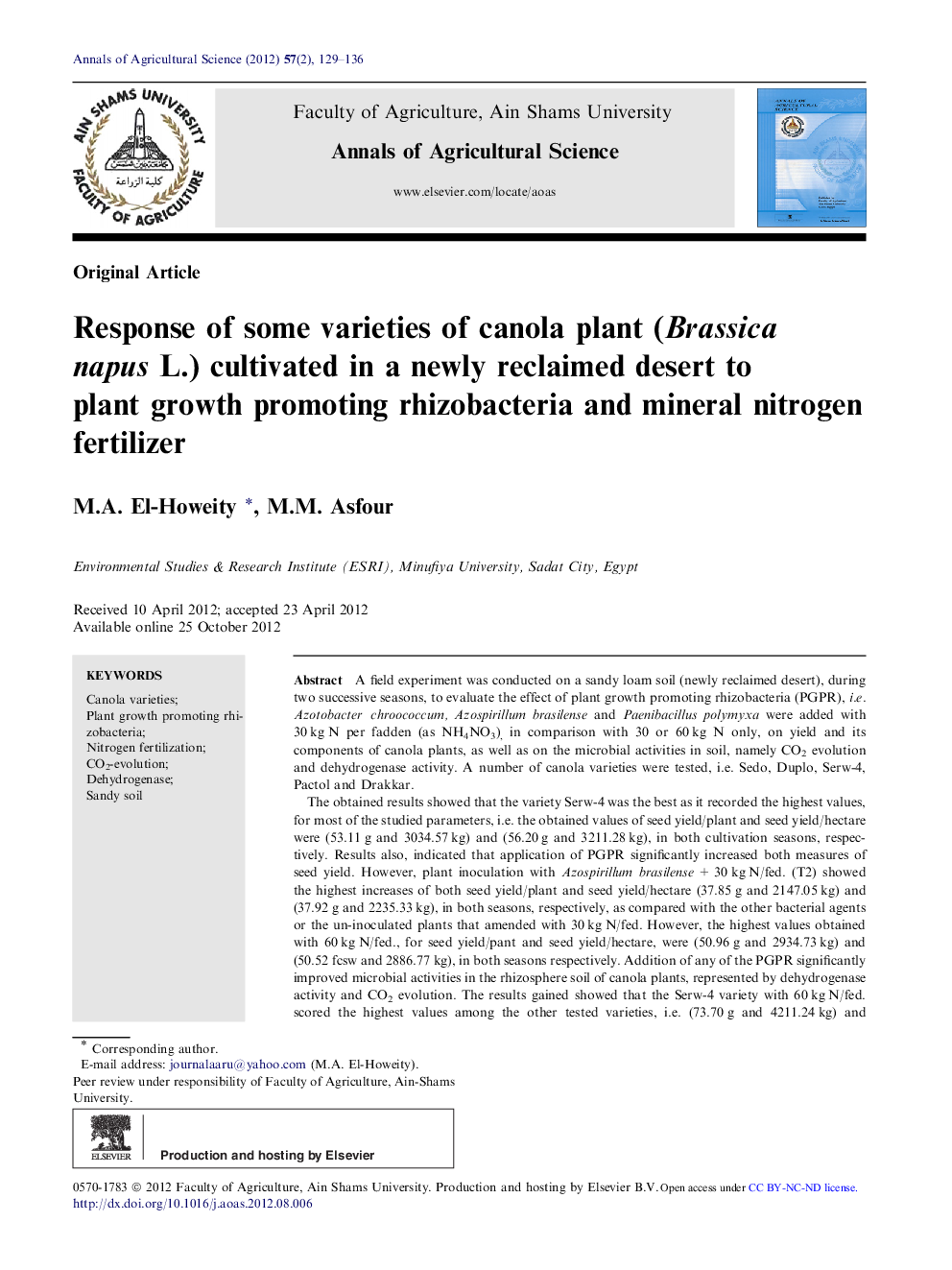| Article ID | Journal | Published Year | Pages | File Type |
|---|---|---|---|---|
| 4492935 | Annals of Agricultural Sciences | 2012 | 8 Pages |
A field experiment was conducted on a sandy loam soil (newly reclaimed desert), during two successive seasons, to evaluate the effect of plant growth promoting rhizobacteria (PGPR), i.e. Azotobacter chroococcum, Azospirillum brasilense and Paenibacillus polymyxa were added with 30 kg N per fadden (as NH4NO3), in comparison with 30 or 60 kg N only, on yield and its components of canola plants, as well as on the microbial activities in soil, namely CO2 evolution and dehydrogenase activity. A number of canola varieties were tested, i.e. Sedo, Duplo, Serw-4, Pactol and Drakkar.The obtained results showed that the variety Serw-4 was the best as it recorded the highest values, for most of the studied parameters, i.e. the obtained values of seed yield/plant and seed yield/hectare were (53.11 g and 3034.57 kg) and (56.20 g and 3211.28 kg), in both cultivation seasons, respectively. Results also, indicated that application of PGPR significantly increased both measures of seed yield. However, plant inoculation with Azospirillum brasilense + 30 kg N/fed. (T2) showed the highest increases of both seed yield/plant and seed yield/hectare (37.85 g and 2147.05 kg) and (37.92 g and 2235.33 kg), in both seasons, respectively, as compared with the other bacterial agents or the un-inoculated plants that amended with 30 kg N/fed. However, the highest values obtained with 60 kg N/fed., for seed yield/pant and seed yield/hectare, were (50.96 g and 2934.73 kg) and (50.52 fcsw and 2886.77 kg), in both seasons respectively. Addition of any of the PGPR significantly improved microbial activities in the rhizosphere soil of canola plants, represented by dehydrogenase activity and CO2 evolution. The results gained showed that the Serw-4 variety with 60 kg N/fed. scored the highest values among the other tested varieties, i.e. (73.70 g and 4211.24 kg) and (76.33 g and 4361.70 kg), in both seasons, respectively. Response of the other examined varieties to the experimental treatments revealed the order: Serw4 > Duplo > Sedo > Drakkar > Pactol.
